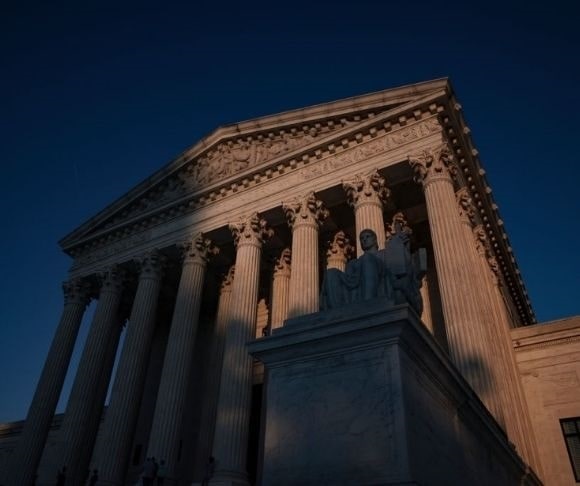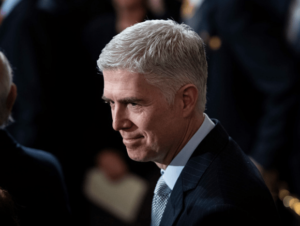On Friday, December 10, the United States Supreme Court issued an opinion in the abortion case of Whole Woman’s Health v. Jackson, a challenge to the Texas Heartbeat Act, officially S.B. 8. Legal Affairs Editor Scott D. Cosenza breaks down the ruling and its consequences.
Graham J. Noble: What was the case about, exactly? Was it a direct challenge to the constitutionality of this new law in Texas?
Scott D. Cosenza: This case concerned a “pre-enforcement challenge” to the new Texas abortion bill. Abortion providers in Texas didn’t want to wait until they may be sued under the bill, so they brought this challenge.
 The legislation bans abortion after the detection of an unborn child’s heartbeat, which normally occurs after about six weeks of pregnancy. There is, however, a quite peculiar penalty and enforcement mechanism; It provides for a private cause of action against abortion providers. That means there are no criminal charges involved. Prosecutors won’t bring charges against abortion providers. Instead, any person can sue someone who performs or facilitates an illegal abortion for a minimum of $10,000 in statutory damages.
The legislation bans abortion after the detection of an unborn child’s heartbeat, which normally occurs after about six weeks of pregnancy. There is, however, a quite peculiar penalty and enforcement mechanism; It provides for a private cause of action against abortion providers. That means there are no criminal charges involved. Prosecutors won’t bring charges against abortion providers. Instead, any person can sue someone who performs or facilitates an illegal abortion for a minimum of $10,000 in statutory damages.
GJN: Is that a unique method of legislating against a particular activity or practice?
SDC: At least in abortion law, yes. Pro-life legislators crafted the law in Texas specifically to avoid Supreme Court review. The idea was since no type of official or person was authorized to enforce the law, then the Supreme Court’s hands would be tied if they tried to stop enforcement of the law.
GJN: How did this get to the Supreme Court, then, given the efforts by pro-life Texas legislators to avoid that very outcome?
SDC: Abortion providers challenged the law in federal court in July to block its implementation. The Supreme Court declined to do so when the case got to them in August. Then the abortionists came back to the High Court to challenge the specifics of the law’s private-enforcement mechanism. The Court agreed to hear the case and fast-track it, along with the Biden administration’s challenge to the law.
GJN: And how did the Court rule this week?
SDC: Justice Neil Gorsuch wrote for Court, in a 5-4 opinion, that the abortion providers could not proceed with their lawsuit against the Texas Attorney General, state judges, or court clerks. He was joined by Justices Clarence Thomas, Samuel Alito, Brett Kavanaugh, and Amy Coney Barrett. Chief Justice John Roberts wrote a dissenting opinion, and he was joined by Justices Steven Breyer, Sonia Sotomayor, and Elena Kagan.
It wasn’t a complete loss for the abortion providers, however, as the Court ruled 8-1 that their suit could advance against state officials responsible for medical licensing and the head of the Texas health department. Justice Thomas was the only dissenting vote from that part of the ruling.
They ruled 9-0 that a suit against a private anti-abortion activist likely to sue under the law could not go forward. Finally, the justices dismissed the Biden administration’s attempt to get involved with the case as premature. That order came with a single dissent by Justice Sotomayor.
GJN: Please explain some of the thinking employed by individual Supreme Court justices.
SDC: They were unsurprising and tracked with what we’ve heard from members of the Court before. Justice Thomas would have ruled against the providers on several bases, including one he has articulated several times before. He wrote, “abortion providers lack standing to assert the putative constitutional rights of their potential clients.”
Justice Sotomayor is Thomas’ bookend on the Court when it comes to abortion. She has repeatedly written about how legislation designed to frustrate abortions and avoid negative outcomes in the Supreme Court should be stricken down. Sotomayor wrote, “By foreclosing suit against state-court officials and the state attorney general, the Court effectively invites other States to refine S. B. 8’s model for nullifying federal rights. The Court thus betrays not only the citizens of Texas but also our constitutional system of government.”
Chief Justice Roberts has always been seen as an institutionalist, concerned less with ideology – or the Constitution – than with the stability of the Court. His opinion reflected that position, stating, “The clear purpose and actual effect of S. B. 8 has been to nullify this Court’s rulings.” And “The nature of the federal right infringed does not matter; it is the role of the Supreme Court in our constitutional system that is at stake.”
GJN: Another big abortion case was also recently argued in the Supreme Court, of course. What’s the status of that one?
SDC: That case is Dobbs v. Jackson Women’s Health Organization and has been argued, and we are waiting for a ruling, which is not anticipated until late Spring. It deals with a 2018 Mississippi state law that banned abortions after the first 15 weeks of pregnancy.
~ Read more from Scott D. Cosenza.





